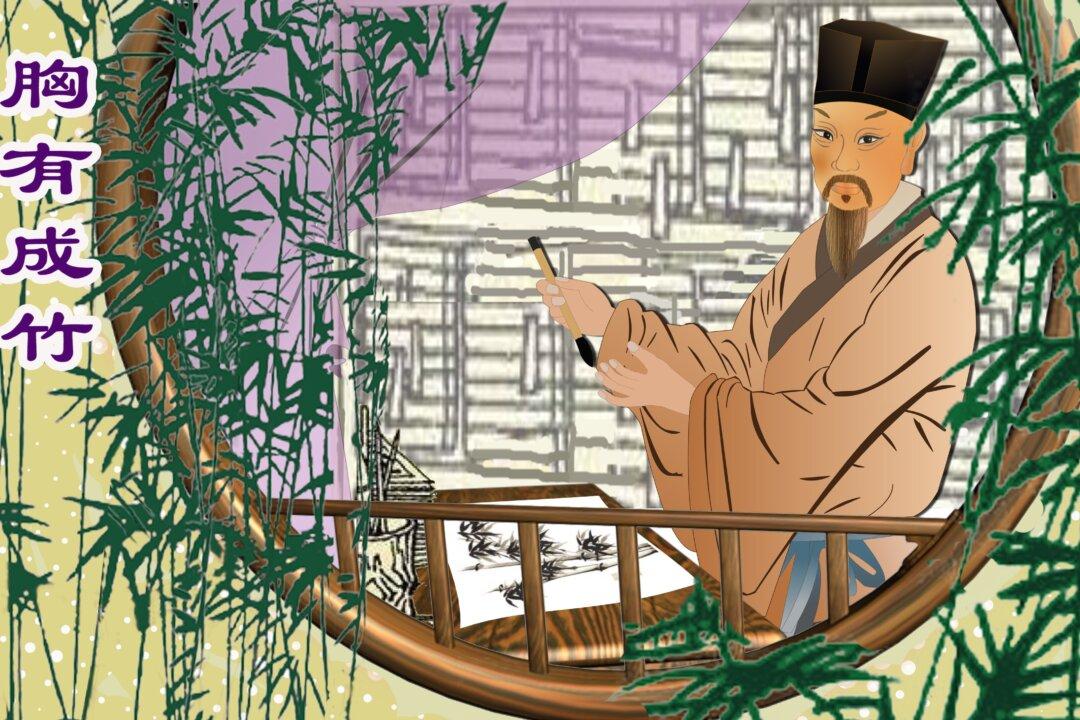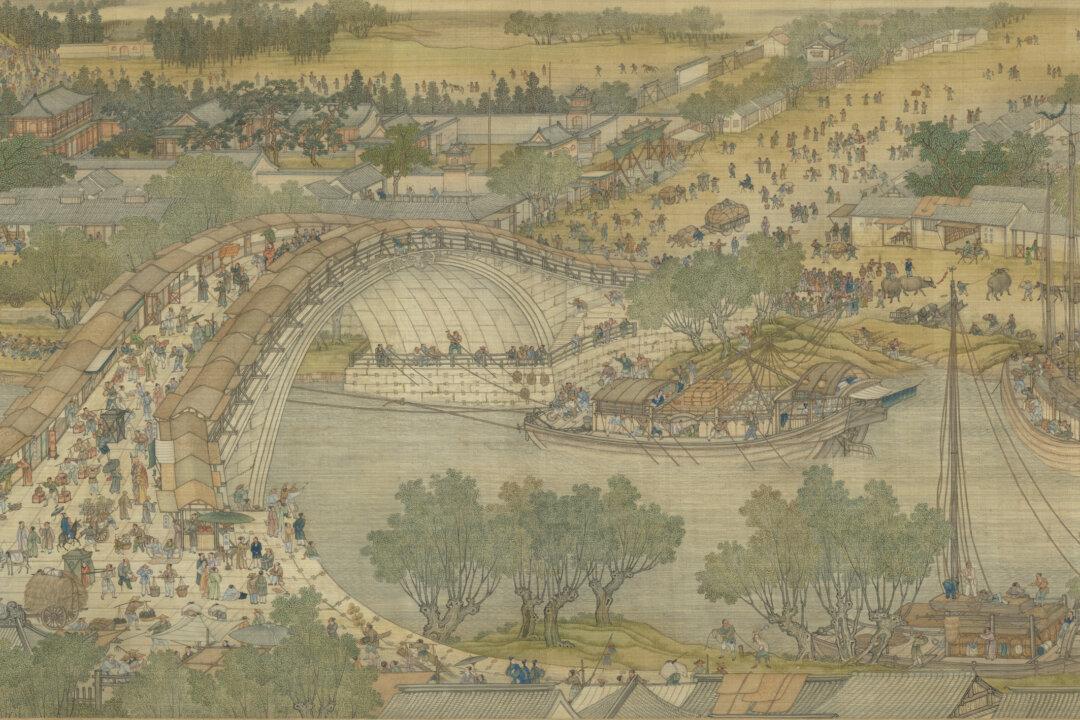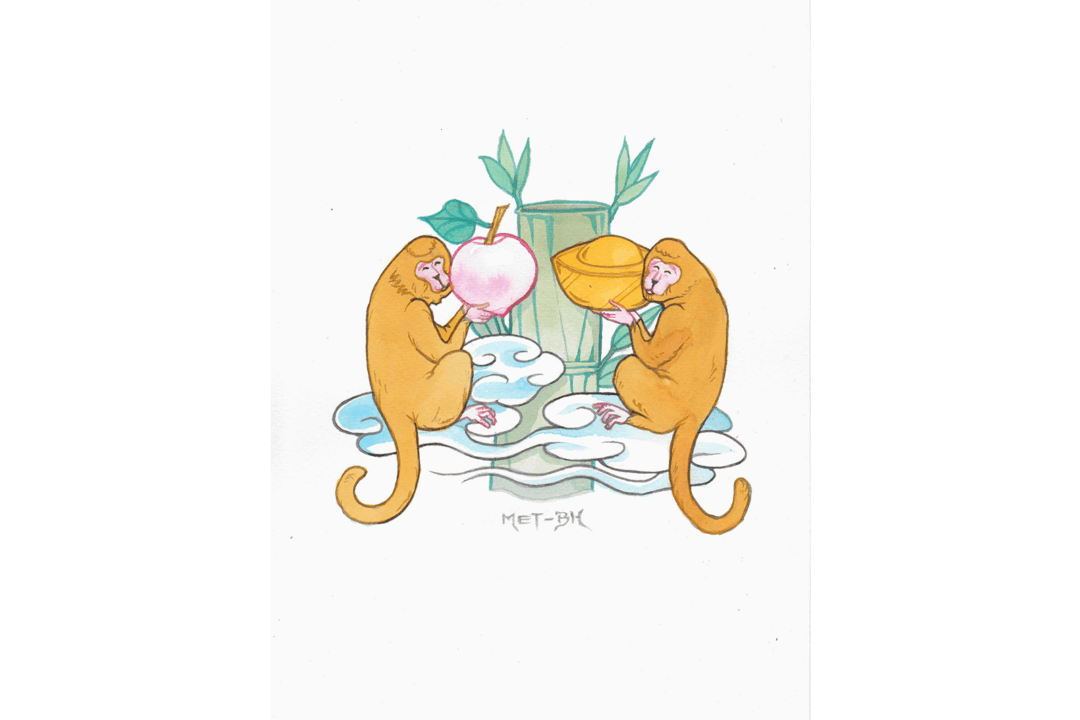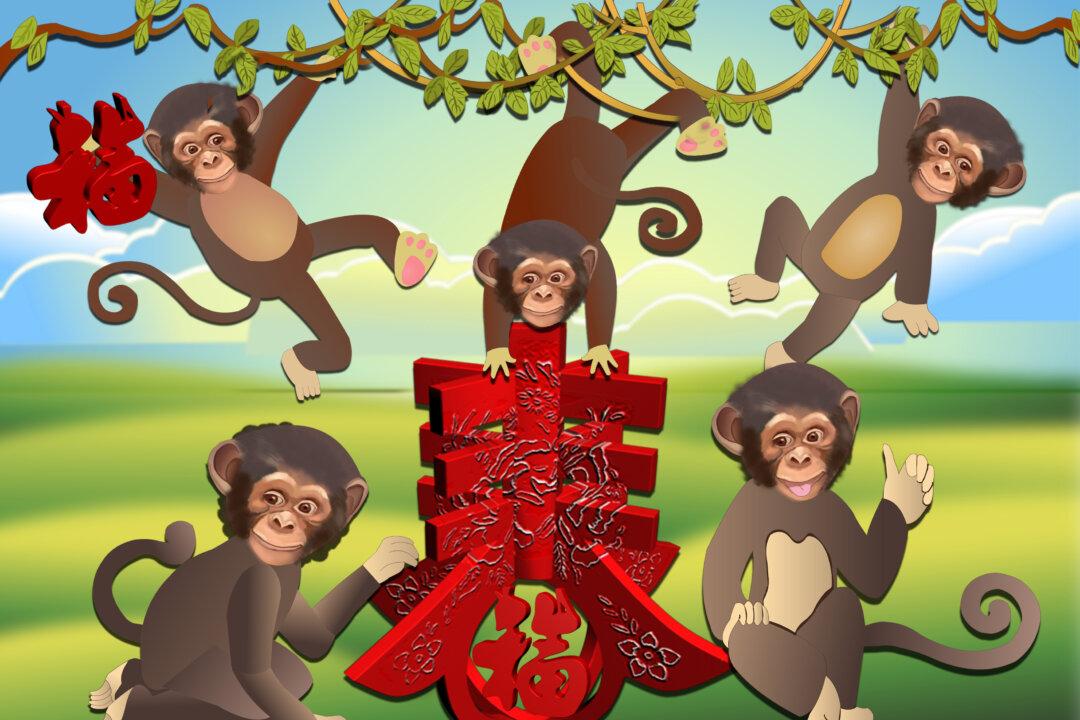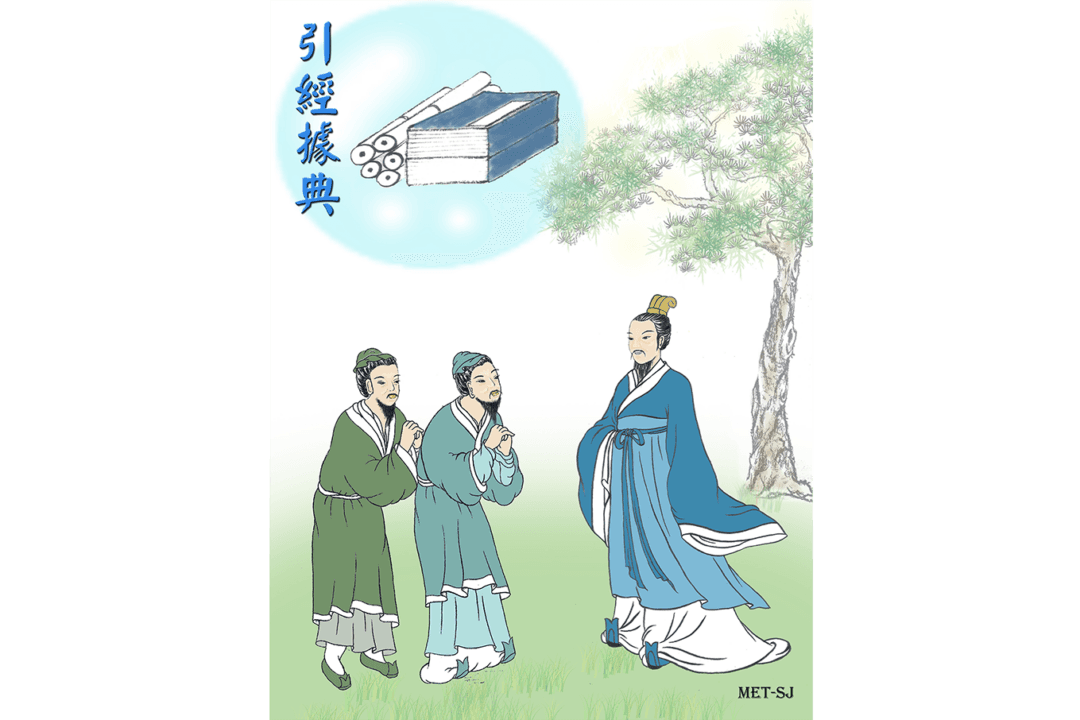Wen Yuke, also known as Wen Tong, was a master artist during the Song Dynasty (960–1279) and was famous for his bamboo paintings. His reputation became known far and wide, and many people sought to study under him.
When Wen was young, he was especially fond of painting bamboo. He planted a grove of bamboo in his yard so that he could observe its growth and appearance at all stages of development and under all kinds of weather conditions.

